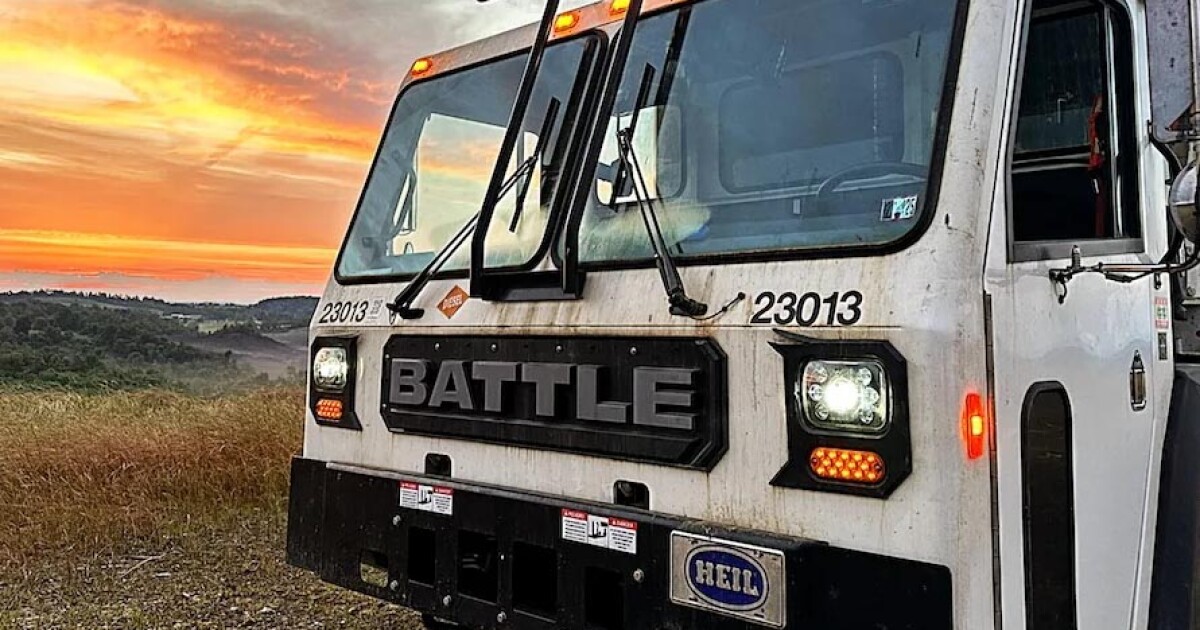Solid waste muni offering due from company facing investor lawsuit
4 min read

Noble Environmental
A municipal bond deal is planned for a waste management company that is facing a shareholder lawsuit.
Fifth Third Securities and U.S. Bancorp plan to price tax-exempt bonds for Noble Environmental, a waste management company, through the Pennsylvania Economic Development Financing Authority as conduit.
The deal has sat on the day-to-day calendar for a month, and none of the bond documents are easily accessible.
Noble Environmental executives are being
Noble Environmental and the Pennsylvania Department of Economic Development declined to say when they expect the deal to price or the reason for the delay.
The $250 million deal was first posted on the MuniOS document distribution platform on June 2. The
In a limited offering, which is typical for unrated deals, the bonds not sold publicly but rather limited to “
CTBH Partners is the municipal advisor and Ballard Spahr is counsel, according to the MuniOS landing page.
Proceeds will be used for
Of the authority’s 1318 listed issuances on Bloomberg, only 21 — less than 2% — were 144A, or qualified institutional investor offerings. Those deals usually come to market less than once a year, and often have multi-state components.
This will be PEDFA’s second private deal this year. In March, it priced a multi-state deal with the West Virginia Economic Development Authority and the Maryland Development Corporation on behalf of
The DCED did not comment on how often they have priced deals with password-protected investor materials.
“It’s unusual for a company that’s getting sued, that has a material lawsuit against it, to be selling muni bonds,” Matt Fabian, partner at Municipal Market Analytics, said. “And it’s much more typical for bond documents to be available than not available. But it makes sense that they both happen from time to time.”
PEDFA held a Tax Equity and Fiscal Responsibility Act hearing for the Noble bonds on April 15. According to the meeting minutes, the hearing lasted 15 minutes and no one asked any questions. A TEFRA
“The state getting attached to [the deal] does give you a little more confidence,” Fabian said; state-owned and state-supervised conduit issuers usually avoid risky deals to protect their reputation, he said.
The lawsuit was brought by Michael Schatzow, a shareholder, against four members of Noble’s leadership; Archaea, inc., a company that harvests natural gas from landfills; and Rice Investment Company, its financial advisor. It was filed on May 20, 2024.
One of the defendants, former Noble president Richard Walton, was fired because of misconduct, according to the lawsuit. However, the rest of the defendants remain on the board, including CFO Terry Cunningham.
Noble’s founders created Archaea and claimed that Noble held 10% of Archaea’s stock, the lawsuit claimed. When
The suit accuses Noble’s leadership of using Noble’s coffers as a “piggy bank” for Archaea and their own personal expenses, misusing company cards and signing themselves low-interest loans.
Noble’s general counsel
Notably, the suit was filed on behalf of Noble Environmental. If the plaintiff is successful, the company will not lose money.
Lawsuits are “inherently unpredictable,” Fabian said. The deal may be on the day-to-day calendar because the company is waiting to see the outcome of the mediation, he added.
The lawsuit is not the only headwind facing Noble’s deal team, Fabian said. Yields in the muni market have crept up this year and high-yield funds have seen little inflows.
These conditions might make high-yield investors more cautious than they would be otherwise, Fabian said. “This isn’t a seller’s market in high-yield right now.”







